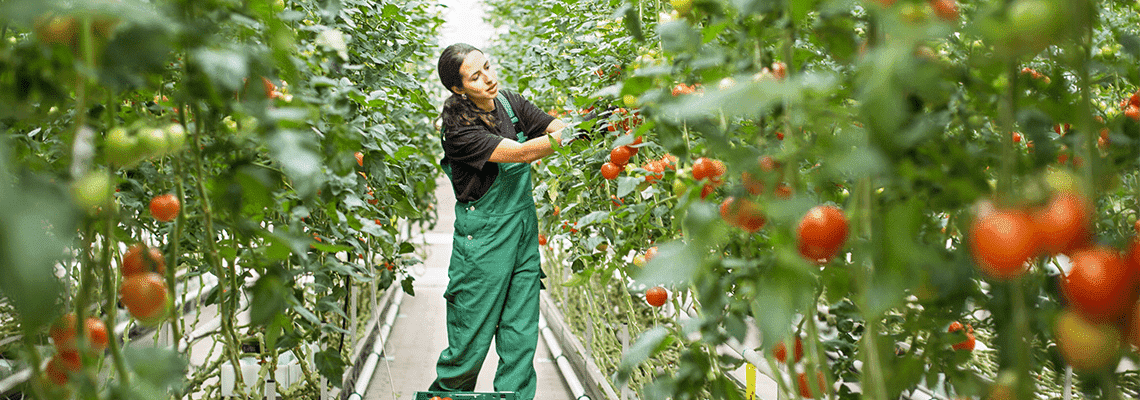The coronavirus is reigning the world. While hospitals are overcrowded and many people are forced to stay at home, most of the economy has come to a stop. Floriculture is one of the sectors that gets hit hard. The vegetable industry, on the other hand, shows a different picture. Although the sector is certainly not immune to the crisis, retailers are still buying products and consumption even increases. Also, the crisis offers opportunities, according to stakeholders from the Dutch vegetable sector.
In recent weeks, floriculture dominated the media. Growers of flowers and plants saw their sales drop sharply and were forced to destroy many of their products. This resulted in billions of damages for the sector and a lot of personal suffering too. In the Dutch vegetable sector, the situation is different. With a growing demand for food and healthy products, many growers can still sell their products to supermarkets. Also, sales to Germany and England, the two most important export countries for the Netherlands, are continuing to a large extent. Jelte van Kammen, CEO at Harvest House, confirms this. With over 1,000 hectares of tomatoes, cucumbers and sweet peppers under cultivation, Harvest House is the largest growers’ association in the Netherlands for salads. “We experience these times with mixed feelings because within Harvest House we are dealing with different products and different sales channels. While the retail demand for vegetables is still high, the demand for catering and foodservice has stalled. Therefore, growers of specialties are having a harder time than others. But in the end, we should be happy that we are active in food and not in floriculture, that’s for sure.”
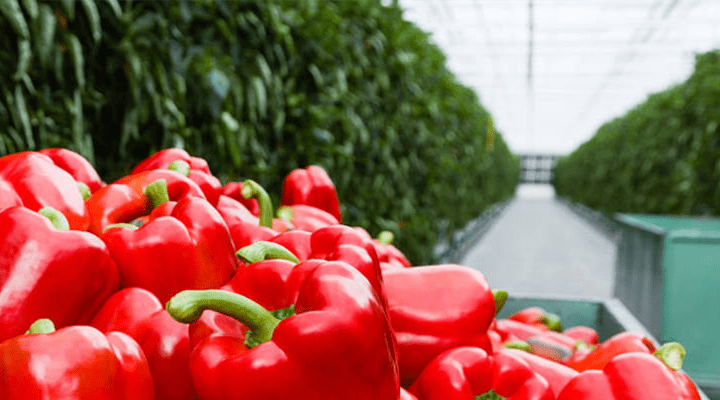
Keep vegetable consumption going
Van Kammen spoke to the growers and packing stations of Harvest House and was told that labour at all locations has been arranged for the time being. "We have to wait and see if this is still the case when we reach a peak in cucumbers and peppers, but already many employees from other sectors have offered to help. So, I don't foresee any problems with that for this period”, says Van Kammen. According to him, it is not yet possible to estimate what the situation will be in high season. “We have to see if we can handle it all and if we will still be able to sell all of our vegetables. That partly depends on our access to foreign markets.” According to Van Kammen, it is especially important that consumption is kept going. “Many events have been cancelled, and sometimes product promotions were linked to them. So, we have to think of new initiatives to deal with that.”
Van Kammen believes that the current situation also offers opportunities. “Looking at the tremendous growth in online sales, I don't expect people will stop buying online after the crisis. So, we will have to think carefully about what this new digital world is asking of us and how we can benefit from it. In addition, people today become more aware of the importance and value of healthy and sustainable food. That is to our advantage. And we should ask ourselves: do we still want to fly all over the world to import products in the future? I expect people to prefer local products because they are more sustainable. This will offer great opportunities for our growers. In that respect, good things always emerge from every crisis.”
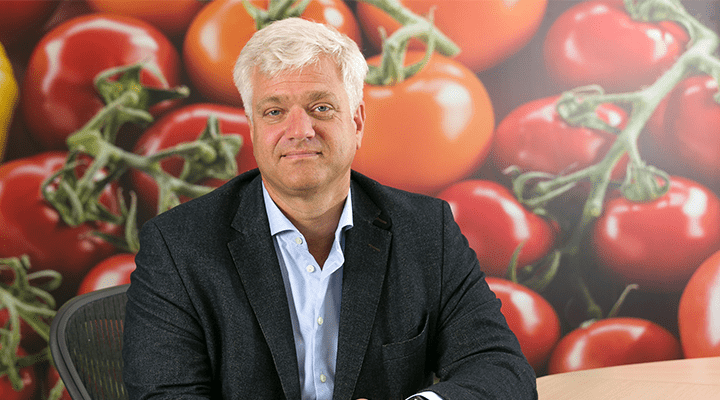
Plenty demand for tomatoes
Tomato grower Joost van der Voort, together with Thom van der Voort, has 18 hectares of vine tomatoes spread over two locations. The corona crisis also affects his business, but not as hard as it does in floriculture, he says. “Some of the prices are under pressure and the market is very unsure. But I am happy that most of the business currently continues. Fortunately, there is still plenty of demand for tomatoes.” However, the conditions in which those tomatoes are grown right now, are not easy. “We work with a team of foreign temporary workers, who all decided to stay. I really appreciate that, and I want to take good care of them. Therefore, we strictly follow all the rules set by the government. So, employees keep their distance from each other, they work in shifts to ensure that not too many people are working at the same time and during breaks and lunches everyone sits at their own table. It has not become more fun, but all employees are still healthy and can do their job. That’s what counts.”
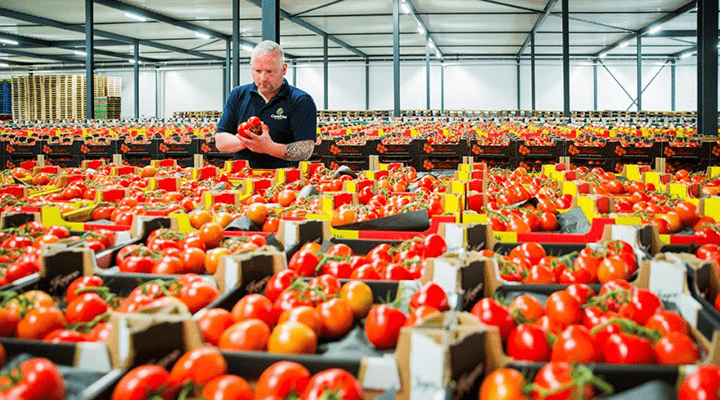
Scale-up traditional cultivation
Recently, there were stories about vegetable growers who had to destroy their products immediately after harvesting. “I have not yet heard those stories in the tomato business,” says Van der Voort, “but now it is, of course, easier to sell retail products than specialties. So, I can imagine that there are also growers who cannot sell their products in the current market.” According to Van der Voort, the relationship between most growers and retailers is still normal. But the availability of enough employees can be a problem later. “Especially when it gets busier. I personally expect the corona measures to remain in force until June or July in the Netherlands. In the coming period we will scale up with traditional cultivation, so it is important to find enough people. On the other hand, a lot of people are at home right now without work. Perhaps they would like to work in the greenhouses.”
Like Van Kammen, Van der Voort also sees opportunities. “The transport from Spain and Morocco is becoming more expensive, so the demand for Dutch products could increase in the coming weeks. In that respect, I am not very pessimistic. People will continue to eat, and food usually finds its way into the market. And when the situation normalises again, I am sure that we as a sector will go full speed ahead. It’s simply in our nature. Still, I feel the pain of my colleagues in floriculture one hundred percent. It is bizarre how hard this crisis is hitting them. Even harder than the EHEC crisis a few years ago. We talk with each other through Skype, and I try to help by sharing knowledge and experience. It is a strange time that will be felt for a long time. So, we have to work this out together.”
Difficult to make predictions
bQurius advises entrepreneurs in greenhouse horticulture in making choices in the field of energy, finance, and labour. Because the company was already set up to work digitally, the service can continue as usual. "Fortunately, because our services are urgently needed at the moment," says Thomas Frankhuizen of bQurius. “The impact on the vegetable sector, where our biggest customers are active, is not yet fully transparent. The situation appears to be stabilising in terms of pricing. The borders are open and retailers see consumers doing their shopping. This seems to be even more because the supply of markets and restaurants has stopped. It is difficult to make predictions in these crazy times, but it seems that the vegetable sector is escaping the worst crisis. ”
According to Frankhuizen, companies are forced to switch quickly in situations like this. “At times like this, we see major differences between companies, where the availability and quality of data and insight play an essential role. There are still many companies that are not organised in a good way. We support companies in the fields of energy management, personnel, and labour, but also in the areas of marketing, finance, and organisational development. The demand for financial support is currently high. Due to our extensive automation of figures and insight via modern dashboards, we are able to provide our customers with the necessary financial information within a day or sometimes within a few hours.”
In addition, bQurius remains aware of all measures and regulations. “We can therefore not only support entrepreneurs by putting their figures in order, but we can also support them in projects with financiers. And we regularly inform our customers with updates about the corona measures. In this way, we try to provide them with current and correct information.”
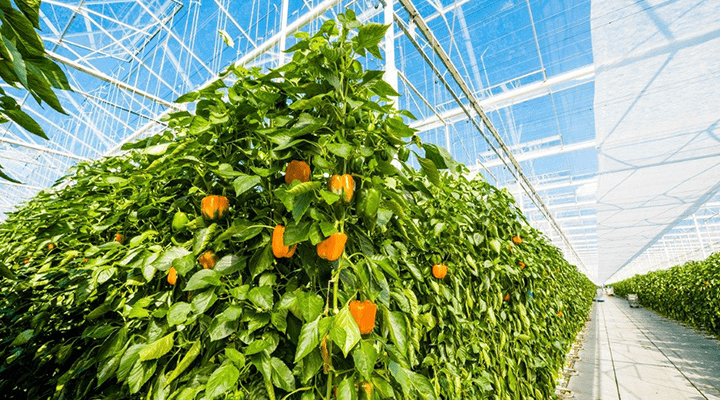
Save the cucumber
Cucumber grower Inge Bergsma-De Vries speaks of a ‘bizarre situation’. “I find it difficult to describe how we currently experience the situation. In a practical sense, we do everything the government advises us, but of course, the fear remains that the disease will also reach us. There are a lot of people around here who are far from home. They trust us that if they get sick, they get the best care. Fortunately, we have arranged the accommodation of our employees on a small scale and we can easily isolate people if necessary.”
Bergsma-De Vries indicates that the cucumber company has become a kind of commune where other people are not allowed to enter, so the work can continue as normal. “A local supermarket is currently having a promotion called ‘save the cucumber’. In other words: buy two or three, otherwise, they will end up in the trash. That is exactly the situation at this moment. The more we produce, the more difficult it becomes to sell everything. Good weather and a high production do not help with that, of course. Living in uncertainty is difficult as a person, but certainly as an entrepreneur. We would like to be in charge of ourselves, but that is not possible now.” However, Bergsma-De Vries is not pessimistic about the near future. “We are confident that the market will stabilise again and that as soon as the rules of conduct become flexible again, our market will recover very quickly. Food is important in times of crisis. Our only option is to continue as usual and we hope and trust that everything will be all right again. ”
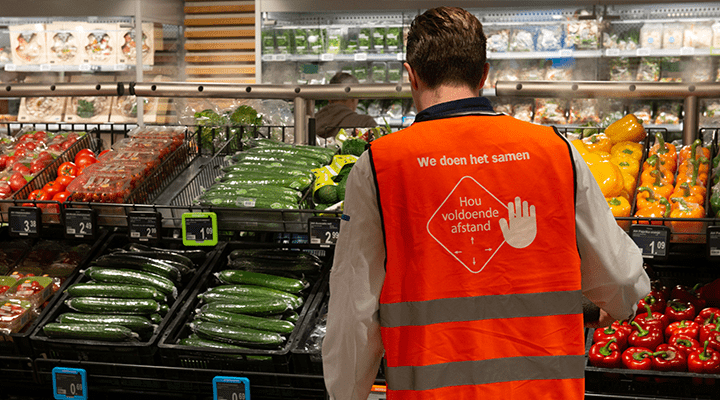
More aware of healthy and fresh food
The western part of the Netherlands is the world’s most innovative region in the field of greenhouse horticulture. This region is represented by network organisation Greenport West-Holland. Program manager Jolanda Heistek speaks of a serious situation for horticulture as a whole. “Growers, traders, suppliers, and other service providers are deeply affected. There is talk of an initial loss of approximately 5 billion euros for floriculture, but damage to the fruit and vegetable industry is also rising to more than 1.2 billion euros already. Fortunately, healthy eating is a basic condition for a healthy life. Therefore, I expect the consumption of vegetables to remain stable and hopefully to rise as consumers become more aware of healthy and fresh food. This could even have a positive effect on the future.” It is important though for a healthy sector that supermarkets are more actively committed to sales and paying a fair price, Heistek believes. “There is a surplus of fresh products because exports have stagnated, and the retail sector should not 'abuse' that. Together, we must keep every link in the chain of our fresh food production at an economically healthy level, for now, and in the future.”
Ingredients and innovation
Heistek also sees possibilities for plant ingredients. “We were already active in this area with BioBased Greenport West-Holland and we will invest extra energy in this soon. For example, we are now looking for opportunities for plant ingredients of products that would otherwise be destroyed, so that the residual flows gain value and are not a loss.” Innovation also remains high on the agenda, according to Heistek, especially when it comes to digitisation, robotisation and autonomous cultivation. “All aspects that we really need at the moment. The autonomous greenhouse requires remote cultivation, and distance is the keyword these days.”
Entrepreneurs need certainties
Greenport West-Holland believes that entrepreneurs now particularly need certainties. In the field of finance, for example. “That is why we are happy with the government's emergency measures. But unfortunately, these are not enough”, says Heistek. “That is why the Corona Crisis Management Group has called for an emergency fund specifically for horticulture. It is therefore important to know what the actual damage for growers is. And, what the forecast is for the damage in the future. Which investments are now delayed? This will determine the business climate in the coming years. Furthermore, growers need certainty that sales will continue, certainty that there are employees to harvest the products, and certainty that the corona crisis will not last too long. We can’t influence the virus, but we’ll work hard to ensure the rest.”
Heistek wants to conclude with a bright spot: the entrepreneurship, the resilience, and the innovative strength of the entrepreneurs. "Combined with the solidarity that our governments and organisations are now showing, we should be able to rebuild a healthy and vital horticultural cluster after this crisis."

